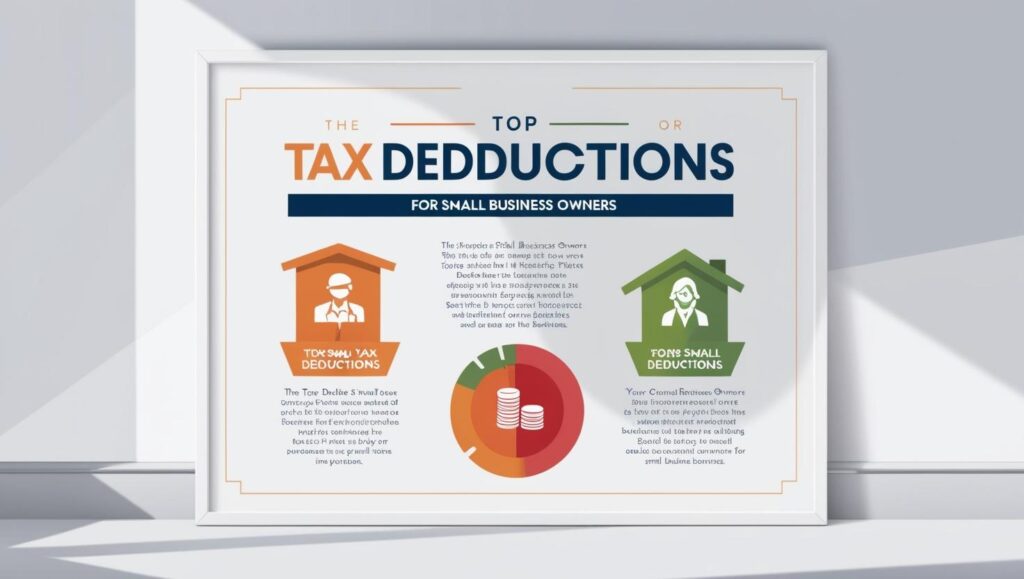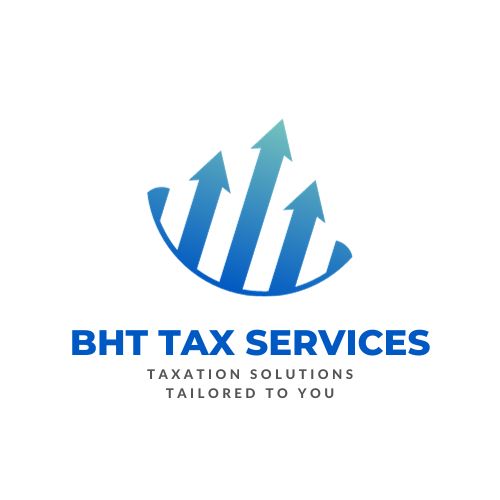
Navigating the complexities of tax season can be challenging for small business owners. Understanding which deductions are available can significantly reduce your tax burden and improve your business’s bottom line. Below, we detail the top tax deductions every small business owner should know to maximize savings.
1. Home Office Deduction
If you use a part of your home exclusively for business, you can claim the home office deduction. This includes expenses such as:
- Mortgage interest or rent
- Utilities like electricity, water, and internet
- Homeowners insurance
- Depreciation
The IRS offers two methods to calculate this deduction: the simplified method (a flat rate per square foot) and the actual expense method (proportionate share of expenses). Be sure to maintain accurate records to substantiate your claim.
2. Business Vehicle Expenses
For those who use their personal vehicle for business purposes, you can deduct mileage or actual expenses:
- Standard mileage rate: Deduct a fixed amount per mile driven for business.
- Actual expenses: Deduct the proportionate cost of fuel, maintenance, insurance, and depreciation.
Ensure to log all business-related trips and associated costs to back up your deduction.
3. Employee Salaries and Benefits
Compensating employees is not just good for business; it’s also tax-deductible. Deductions include:
- Salaries and wages
- Bonuses
- Health insurance contributions
- Retirement plan contributions
Independent contractor payments are also deductible, but you must file a 1099-NEC form for each contractor paid over $600 in a year.
4. Marketing and Advertising Costs
Promoting your business is crucial, and fortunately, these expenses are fully deductible. Eligible expenses include:
- Website development and hosting fees
- Social media advertising
- Business cards, flyers, and brochures
- Promotional events and sponsorships
Investing in your brand can lead to significant tax savings while driving growth.
5. Office Supplies and Equipment
Essential items used to operate your business qualify for deductions. Examples include:
- Stationery, pens, and paper
- Printers, computers, and software
- Office furniture
For expensive items, you may need to depreciate the cost over several years using Section 179 deductions or bonus depreciation.
6. Travel Expenses
Business travel expenses are deductible, provided they are necessary and ordinary. Covered expenses include:
- Airfare, train tickets, or car rentals
- Hotel accommodations
- Meals (50% deductible)
- Transportation such as taxis or ride-shares
Keep receipts and maintain a detailed record of the purpose and itinerary of the trip to satisfy IRS requirements.
7. Professional Services
Fees paid to professionals for business-related services are deductible. These include:
- Accountants and tax preparers
- Legal services
- Consultants
- Bookkeeping services
Even fees paid for software subscriptions related to these services can qualify.
8. Education and Training
Investing in professional growth benefits your business and your tax return. Deductible expenses include:
- Workshops and conferences
- Online courses and certifications
- Books and industry publications
- Training programs for employees
To qualify, the education must directly relate to improving your current business or skill set.
9. Rent and Lease Payments
Whether you lease office space or equipment, these payments are deductible. Include costs such as:
- Office or coworking space rent
- Equipment leases for items like copiers or machinery
- Storage facility rentals
Ensure to separate personal and business use to avoid IRS complications.
10. Utilities and Phone Bills
Utilities necessary for business operations are deductible, such as:
- Electricity and water
- Internet and phone services
- Heating and air conditioning
For mixed-use expenses (e.g., a personal phone used for business), only the business-related portion is deductible.
11. Business Insurance
Insurance premiums related to protecting your business are deductible. Common examples include:
- General liability insurance
- Property insurance
- Workers’ compensation
- Cyber liability insurance
These deductions ensure your business is covered while reducing taxable income.
12. Loan Interest and Banking Fees
If your business relies on loans or credit, the associated costs are deductible. These include:
- Interest on business loans
- Credit card interest (business-related charges only)
- Bank fees for business accounts
Keeping clear records of loan agreements and repayment terms is essential to claiming these deductions.
13. Depreciation of Assets
Depreciation allows you to recover the cost of significant purchases over time. Assets that qualify include:
- Machinery and equipment
- Buildings
- Vehicles
Using either the straight-line method or accelerated depreciation, you can reduce taxable income over the asset’s useful life.
14. Start-Up Costs
New business owners can deduct up to $5,000 in start-up costs and $5,000 in organizational expenses in the first year. Eligible expenses include:
- Market research
- Advertising
- Legal and professional fees
- Employee training
Any additional costs are amortized over 15 years.
15. Retirement Contributions
Contributing to a retirement plan benefits you and your employees while offering tax advantages. Common plans include:
- SEP IRA
- SIMPLE IRA
- 401(k) plans
Self-employed individuals can also contribute to a Solo 401(k), which offers high contribution limits.
16. Charitable Contributions
If your business donates money, goods, or services to a qualified charitable organization, these contributions are deductible. Be sure to:
- Obtain written acknowledgment for donations exceeding $250.
- Verify the recipient’s tax-exempt status.
Charitable giving not only reduces taxes but also enhances your business’s reputation.
Final Thoughts
Taking full advantage of available tax deductions is crucial for reducing your tax liability and keeping more of your hard-earned profits. Consult a tax professional to ensure you maximize your savings while staying compliant with IRS regulations.
